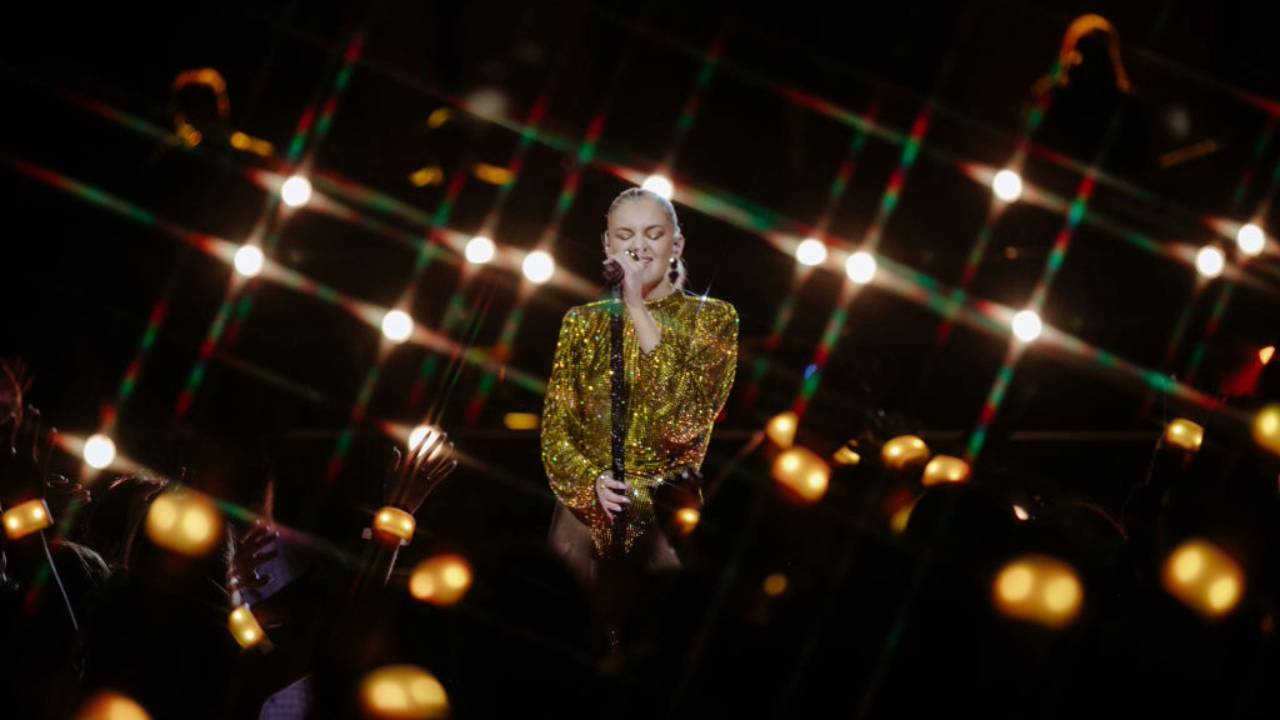Keith Urban on Musical Influences and the "800-Pound Gorilla" of Celebrity

Keith Urban and Carrie Underwood will perform "The Fighter," the new single from his Ripcord album, on the 59th annual Grammy Awards show airing live Sunday night (Feb. 12) from Los Angeles on CBS.
The two recently performed together in Australia and New Zealand, but they had sung before on previous tours.
"We toured together a long time ago, and we'd do 'Stop Dragging My Heart Around' every night," Urban told CMT.com. "She's a phenomenal singer. When we wrote this song, it was really her voice that I had in mind -- the timbre and tone, if you want to get technical about it."
Ripcord is up for best country album at the Grammys. Urban is also nominated for best country solo performance for "Blue Ain't Your Color," which also netted a best country song nomination for songwriters Clint Lagerberg, Hillary Lindsey and Steven Lee Olsen.
During an interview conducted around last year's release date of Ripcord, Urban talked about his thirst for new sounds and how a John Mellencamp concert changed his creative vision. Along the way, he also demonstrated a well-grounded perspective on the fleeting nature of celebrity status.
What kind of music influences you these days?
Everything influences me. I listen to so much stuff. I think everybody does now. We're exposed to music so fast. I have the Shazam app on my phone, and I tag stuff all the time. I'm the guy standing on the table in the restaurant with my phone up to the speaker trying to get the thing. It's super handy when you're in another country. I was in the south of France one time, and the driver couldn't speak any English. I wanted to know which artist was on the radio. I wouldn't know the artist, anyway, and I couldn't pronounce it, so I just Shazammed it. And I bought that song when I got back to the States. It all informs the creative liberation in the studio. That's what I find.
I would say I'm mostly influenced by new music because there are brand new ways of structuring sound. And even song structure is constantly being dismantled. The rules are broken constantly. So I think the potential for what I can do with my music is only limited by my imagination and the people I get to work with.
In terms of other artists, can you think of any concerts that made a difference in your life?
The most impactful one for me was probably John Mellencamp in '88 or '89 on the Lonesome Jubilee Tour. It was singularly the most epiphany experience I'd ever had at a concert. Prior to that, from the age of 6 or 7, I was somewhere in between Top 40, country and, "Who the hell am I and what do I do?" But The Lonesome Jubilee came out. I loved "Paper in Fire" and "Check It Out" because it was such a melting pot of things. But when I went to see him live, his band was so phenomenally good. Great, great band.
And I remember watching the concert -- and the light went off. There's a rock rhythm section, but there's acoustic guitar, electric guitar. This fiddle, this accordion. He's singing these rural lyrics, but he's got swagger and attitude for days. It was like everything came together. I got to talk to John years later, and I said to him how much that concert changed my life. I didn't leave that concert thinking "I want to be Mellencamp." I went away going, "Take all of your influences and make your own thing." It was such a liberating experience for me.
With a high-profile marriage and all the TV exposure on American Idol, you've become a mainstream celebrity. Do you ever worry that being in the limelight will adversely affect your music?
No. Because I'm hungry and passionate about music. And I love being in the studio. Being onstage and in the studio is me. It's my whole life. Nic and I are quite private. I feel fortunate that I've been playing music since I was 6 years old. Celebrity and all of that stuff, I feel very compartmentalized with it and what it is. Actually, I also think back to high school.
The first sort of exposure I had to celebrity was when I played the lead role in the school musical of Oliver. I was in the eighth grade, and I got picked to play the role because they needed a blond kid who could sing. It was probably me or a girl. I got the gig, which I thought was amazing. The next thing I know, the school made up these little badges -- these pin badges -- with a picture of me holding a bowl.
Suddenly, my picture was on all these badges. Prior to that, I wasn't really of interest to girls -- at all. Then when this badge came out, I had girlfriends everywhere. I was in the eighth grade. I was in heaven. I did the play. I had plenty of girl interest and thought, 'This is fantastic!"
Within a week of the play finishing, it all dried up again. It was gone. As fast as it came, it went. So I remember in the eighth grade, going, "I get it. OK, I see it. I see what this is." It was a great lesson to learn that early on.
For those of us who aren't famous, anonymity is probably something we don't really appreciate or even think about … if that makes any sense.
Of course it does. It's a weird, 800-pound gorilla we all dance with: the want for our music to be heard by as people as we can get to hear it, the ways we can facilitate that, but the price it extracts at the same time.





